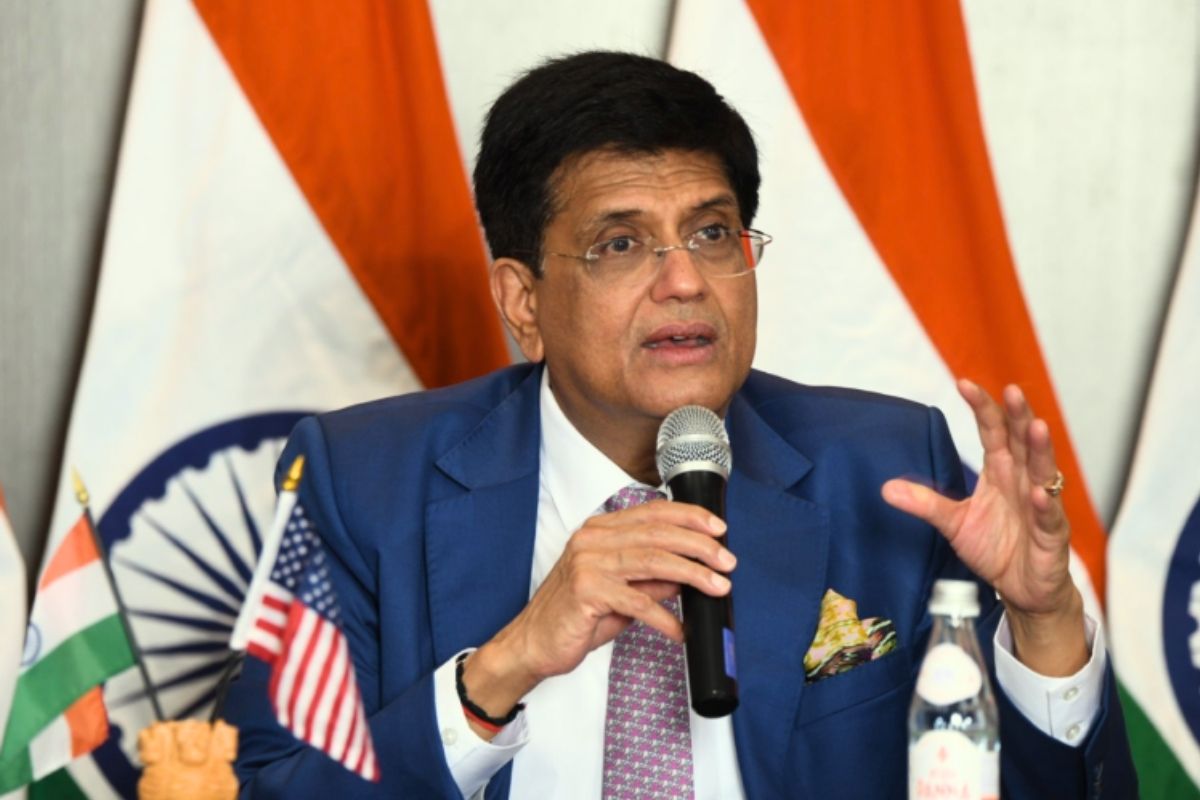NEW DELHI: The Carbon Border Adjustment Mechanism (CBAM), also known as a carbon tax in the form of an import duty, will be implemented starting January 1, 2026.
India is set to address the issue of the European Union’s (EU) plan to impose a carbon tax on certain imported goods, Commerce and Industry Minister Piyush Goyal on Friday said, adding that “I will retaliate” if required.
The Carbon Border Adjustment Mechanism (CBAM), a form of carbon tax functioning as an import duty, is scheduled to be enforced from January 1, 2026. Nevertheless, starting October 1 of the current year, companies operating domestically in seven carbon-intensive sectors, such as steel, cement, fertiliser, aluminum, and hydrocarbon products, will be required to disclose data on carbon emissions to the EU.
“Bharat will address the problem of CBAM with confidence, and we will find solutions. We will see how we can convert CBAM to our advantage if it comes in. Of course, I will retaliate. You need not worry about it,” Goyal said here at an industry chamber event.
Starting January 1, 2026, CBAM will result in a 20-35 per cent tax on specific imports into the EU.
Approximately 26.6 per cent of India’s exports, including iron ore pellets, iron, steel, and aluminum products, are destined for the EU. These particular products would be affected by CBAM. In 2023, the value of these exported goods to the EU amounted to $7.4 billion.
He also mentioned that India responded with retaliation when the US imposed additional customs duties on specific steel and aluminum products. The minister highlighted that employing electric vehicles offers economic advantages.
Using the example of Mumbai’s Brihanmumbai Electric Supply and Transport (BEST), Goyal mentioned that although it was consistently operating at a loss, they are now transitioning to electric buses.
“Now, in a year or 1.5 years, there will be 100 per cent electric buses and …(I have been told that) as soon as all the buses go electric, they would end losses and covert it (BEST) into a profit-making body,” he said.
He urged that each state transportation entity can transform into a profitable entity by embracing electric mobility.
Speaking about the country’s foreign exchange reserves, he assured that the reserves are sufficient for the next 5-6 years, maintaining the current levels of the current account deficit or trade deficit, without posing any risk to the Indian economy.
As of December 1, India’s foreign exchange reserves totaled $604 billion. Additionally, he noted that nations like Chile and Peru are exploring trade agreements.








